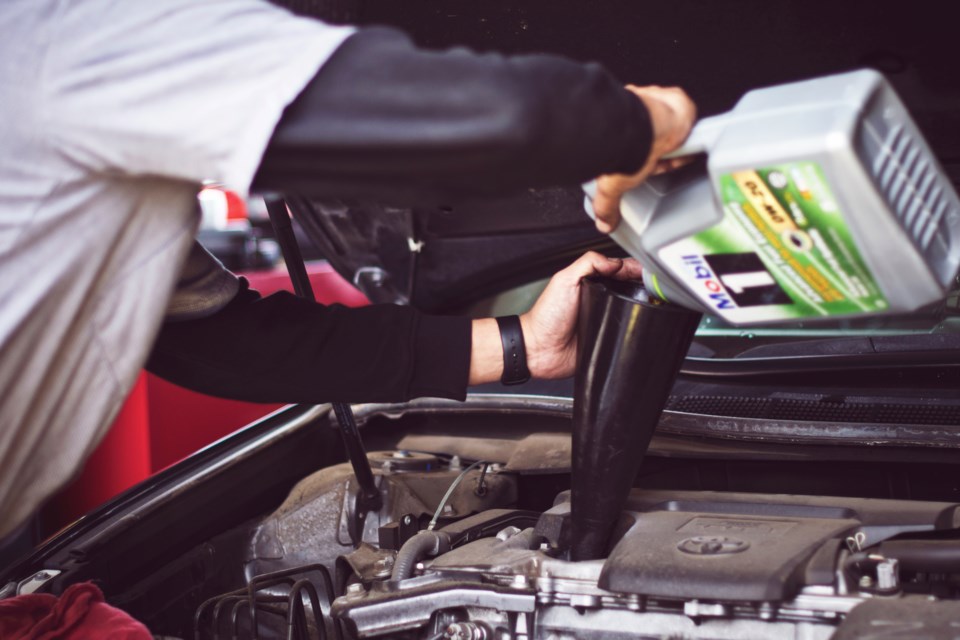With winter approaching, many of us will be taking our vehicle in for service, which typically includes fluid and tire changes – or perhaps to make sure that all is in good order.
For some who drive newer vehicles as well as those under a lease, there may be some concerns about whether you must always use your dealership – or can you use an independent mechanic/shop to do this work. Will it invalidate the warranty on the vehicle?
Understand your vehicle's warranty
Vehicle manufacturers typically provide a warranty that covers the cost of repair/replacement of the vehicle's components. What is covered and for how long is detailed in the warranty documents specific to your vehicle. This document will also identify those things that might cancel the warranty.
There are many parts not covered by the manufacturer's warranty. Most regularly scheduled maintenance items and replacement parts are typically excluded. These often include lubricants, filters, brake pads, wiper blades, oils, grease, refrigerant and much more.
Manufacturers will also list things "beyond their control" that will cause them to deny warranty coverage when work is done at a mechanic's shop other than by your dealer. For example:
- Improper adjustments or repairs
- Modification, alteration or tampering, disconnection, including installation of non-manufacturer accessories
- Repairs and adjustments caused by improper maintenance, lack of required maintenance and/or use of fluid, fuel, oil, or lubricants other than those recommended in the owner's manual
- Installation of non-manufacturer's parts
It is best to make sure you read and understand the warranty.
Do the scheduled maintenance and keep good records
The key to keeping your vehicle in the best shape possible and protecting the warranty coverage is to follow the manufacturer's scheduled maintenance based on distance travelled and elapsed time. Just because you didn't drive the vehicle a lot this past year doesn't mean that you can ignore the passage of time specified in the maintenance document.
If you choose to have something done other than by an authorized dealer, you need to make sure that they follow the maintenance steps outlined in the manufacturer's maintenance schedule AND only use parts/lubricants/oils as specified by the manufacturer.
Warranties and related policies are not the same for all manufacturers. Some are more lenient than others, so it's best to check first.
"Honda and Acura customers can choose to have their regular maintenance (oil changes, brake service, etc.) completed anywhere. They should keep their invoices in case it is required as part of a warranty claim down the road. Warranty only covers defects in material or manufacturing, not repairs required as a result of workmanship or lack of maintenance. Honda Canada will pay for warranty work done at authorized Honda and Acura dealers only. In addition, any recalls or warranty extension service is also to be performed by an authorized dealer." (John Bordignon, Brand Communications, Honda Canada, Oct. 27, 2021)
Toyota Canada offers the following suggestion in their "New Vehicle Warranty" document.
"You should keep detailed records of your vehicle maintenance schedule and history, since under some circumstances they may be required for warranty coverage. These records must include the vehicle information, date of service, kilometres at the time of service and a description of service performed and/or parts installed. "
Use licensed mechanics/shops
Major chains and vehicle service shops that offer oil, filter and lubricant change, tire service, etc., are fully aware of your vehicle's specific manufacturer's requirements and strive to meet them.
In choosing one to service your vehicle, have a conversation about their experience with your make and model or similar vehicles. Ask about their practices to meet manufacturer warranty requirements.
Why use someone other than your dealer?
One of the most common concerns about using the "dealer" that I hear relates to cost. Vehicle dealers rely on their service department to look after and keep their customers, but also to generate income. They make significant investments in their service bays, tools, technicians, as well as customer conveniences such as waiting lounges, shuttle service, etc.
As a result, it is not unusual that their repair rates can sometimes feel too expensive – or that you might feel pressured to do repairs/services that seem unnecessary. When faced with a significant cost, you can always go to an independent shop to double-check the absolute need for that repair or service right now and what they might charge for the same.
Remember that in addition to the labour cost, the other significant cost is parts – that are often bought by the independent shop from the dealer anyway.
In the end – the choice often comes down to convenience.
